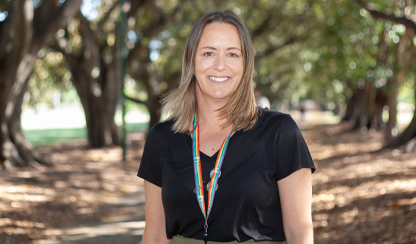Dolphin
Senior Member (Voting Rights)
https://baker.edu.au/news/institute-news/long-covid-funding
Funding to advance understanding of the impacts of long Covid
Institute news

Associate Professor Erin Howden is one of 12 researchers nationally to be awarded a Medical Research Future Fund (MRFF) grant aimed at improving the lives of people with long Covid. The grants are the first investments from a $50 million commitment from the Federal Government to generate better evidence on the effective management of long COVID in the Australian community.
Fatigue, dizziness, tachycardia and brain fog are among the most commonly described symptoms of long Covid/post-acute sequalae of Covid-19 (PASC). These symptoms are also commonly experienced by individuals affected by postural orthostatic tachycardia syndrome (POTS) and myalgic encephalomyelitis/chronic fatigue syndrome (ME/CFS).
There’s been considerable interest about the potential overlap between PASC, POTS and ME/CFS, but there’s been no detailed investigation of the shared pathophysiology of these conditions.
A/Prof Howden’s $800,000 grant will allow her to combine MRI scans with direct recordings of sympathetic nerve activity to understand how the brain is regulating blood pressure during stressors like orthostatic challenge and exercise in patients with long Covid, POTS and ME/CFS.
By understanding the mechanisms contributing to long COVID, she hopes to be able to direct treatment strategies that alleviate or resolve symptoms to restore the quality of life for people with long Covid.
TAGS: news institute-news
Funding to advance understanding of the impacts of long Covid
- Baker Institute
- Media centre
- Institute news
- Funding to advance understanding of the impacts of long Covid
Institute news

Associate Professor Erin Howden is one of 12 researchers nationally to be awarded a Medical Research Future Fund (MRFF) grant aimed at improving the lives of people with long Covid. The grants are the first investments from a $50 million commitment from the Federal Government to generate better evidence on the effective management of long COVID in the Australian community.
Fatigue, dizziness, tachycardia and brain fog are among the most commonly described symptoms of long Covid/post-acute sequalae of Covid-19 (PASC). These symptoms are also commonly experienced by individuals affected by postural orthostatic tachycardia syndrome (POTS) and myalgic encephalomyelitis/chronic fatigue syndrome (ME/CFS).
There’s been considerable interest about the potential overlap between PASC, POTS and ME/CFS, but there’s been no detailed investigation of the shared pathophysiology of these conditions.
A/Prof Howden’s $800,000 grant will allow her to combine MRI scans with direct recordings of sympathetic nerve activity to understand how the brain is regulating blood pressure during stressors like orthostatic challenge and exercise in patients with long Covid, POTS and ME/CFS.
By understanding the mechanisms contributing to long COVID, she hopes to be able to direct treatment strategies that alleviate or resolve symptoms to restore the quality of life for people with long Covid.
TAGS: news institute-news
